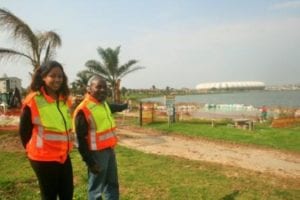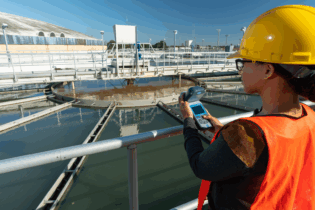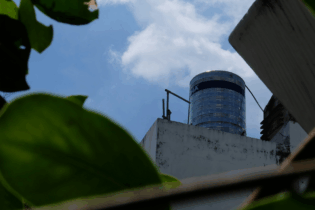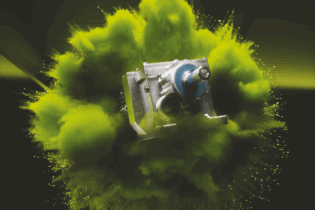Innovative environmental engineering is being put to work at Port Elizabeth’s North End Lake to ensure long-lasting beautification and water quality that works for everyone.
Enviro-friendly microbiological sanitisers, as well as reed and gabion stormwater filter ponds, will work naturally at the city’s urban watering hole to keep pollutants at bay. AfriCoast Consulting Engineers environmental sector manager Clement Ofori, who conceptualised the system, has been involved with the project since the Nelson Mandela Bay Municipality first commissioned the lake area’s clean-up in the approach to the 2010 FIFA World Cup. “North End Lake had received little attention and consequently deteriorated into a polluted and smelly environment prior to the construction of Nelson Mandela Bay Stadium. “Faecal coliform levels were high (in excess of 200 000 counts per 100ml), along with prolific algal blooms and high turbidity levels. These conditions impaired the safe recreational use of the water and undermined the environmental, social and economic values of the Lake.”A unique biotechnology
The area needed a quick fix, but stakeholders agreed that the approach should be environmentally friendly. “AfriCoast’s recommendation of a unique biotechnology, which involved dosing the lake with efficient microbes (a cocktail of positive micro-organisms that out-compete the offensive ones) to quickly clear the odour and turbidity problems, was unanimously accepted,” Ofori said. The firm was tasked with compiling and implementing the Catchment Management Plan that would guide the effective management of the lake and its precinct in the long term.AfriCoast’s extensive scientific, technical and operational expertise enabled Ofori and his team to design a multi-pronged, ‘green’ and sustainable plan: firstly, tackling the catchment to control pollutants at the source, secondly the pre-impoundment management of material in transit, and lastly treatment of the lake water and sediment, which is where the bioremediation with efficient microbes will again be employed.






